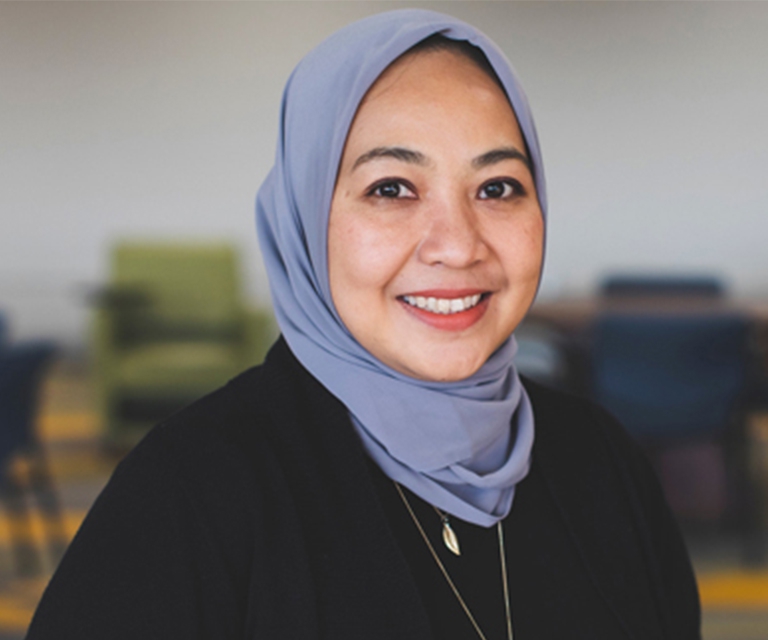
Language Policy the Focus of PhD Scholarship Recipient
Within the private, international primary and secondary schools of Indonesia, which are popular among expatriates and wealthy citizens, the official language of instruction has long been English. Starting in the early 2000s, English-mediated instruction was implemented in public schools across many provinces, reaching over 1,000 of the country’s top schools.
This language policy experiment has broad ramifications for Indonesian society. The languages used in classrooms tend to affect linguistic culture in communities—and vice versa.
Anis Sundusiyah made this topic of educational language policies in Indonesia her focus at the University of Pittsburgh School of Education. She is a PhD candidate in the area of Educational Leadership and is expected to graduate in December 2019.
At the root of Sundusiyah’s research are the tensions that exist at the political, sociological, and pedagogical levels in educational language policies.
“My research has revealed globalist-instrumentalist views that were confronted by nationalist-culturalist perspectives. Their views may not be in direct opposition, but their priorities might not always be aligned,” said Sundusiyah.
Sundusiyah has been supported at Pitt Education through multiple scholarships. Most recently, she received the Clara Barnes Jenkins Scholarship, which is awarded in memory of William H.E. Johnson. The scholarship covered Sundusiyah’s tuition balance and educational expenses toward her dissertation and program completion.
“My educational pursuit would not have been possible without the generous scholarship,” said Sundusiyah.
Post-graduation, she plans to return to her faculty position at the School of Education at Walisongo University in Central Java, Indonesia. She will continue her teaching and research in the language policy field, while also working to build a sustainable partnership between her home university and the Pitt School of Education.
Sundusiyah credits the faculty at the Pitt School of Education for her success. They were what drew her to the school in the first place. Back when she was considering different schools, she recalls meeting with Maureen McClure, an associate professor and the director of the school’s International Institute for Studies in Education. They clicked right away.
“Professor McClure is very familiar with Indonesia’s educational policy, and she understood the context of my research plan. I could see from the onset that I would have a healthy relationship and mentorship with the professors,” said Sundusiyah.
Sundusiyah said the Pitt School of Education also supported her when she faced challenges not related to her academic studies. For example, last summer she became a mother with the birth of her son, Benjamin Nugroho. She was able to adjust her schedule and finish her degree.
“I appreciate that most faculty and staff here in the school are welcoming and willing to help students, especially in challenging times,” said Sundusiyah.
As Sundusiyah prepares to complete her degree and return back to her native Indonesia, she will take with her the lessons learned and attitudes shaped at the Pitt School of Education. The school’s mission to ignite learning and to work for justice and equity in education resonates with her.
“I always felt like my cultural backgrounds and perspectives were accommodated. I was challenged to go beyond my language pedagogy trainings and to delve more into the interdisciplinary field of language policy,” said Sundusiyah.
Learn More
About the PhD program at Pitt Education
About giving and scholarship options to support the Pitt School of Education
About the annual Pitt Day of Giving celebration held on the University of Pittsburgh’s founder’s day




